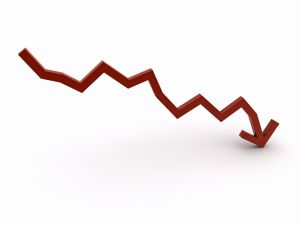The CBO’s latest budget update is out and it’s not pretty. They’re now projecting a $641B budget deficit in the FY 2013 and “economic conditions in 2013 that will probably be considered a recession”. The private sector has largely stopped de-leveraging, but is not yet strong enough to re-lever. That’s a big problem at this stage of the recovery because it means the government deficit is still necessary to offset this unusual weakness. It’s not good news as we head into 2013. I’ve been very vocal about no imminent recession, but I would change my tune pretty quickly if this fiscal cliff issue isn’t dealt with appropriately. Some of the highlights of the CBO report are below:
What Policy Changes Are Scheduled to Take Effect in January 2013?
Among the policy changes that are due to occur in January under current law, the following will have the largest impact on the budget and the economy:
- A host of significant provisions of the Tax Relief, Unemployment Insurance Reauthorization, and Job Creation Act of 2010 (Public Law 111-312) are set to expire, including provisions that extended reductions in tax rates and expansions of tax credits and deductions originally enacted in 2001, 2003, or 2009. (Provisions designed to limit the reach of the alternative minimum tax, or AMT, expired on December 31, 2011.)
- Sharp reductions in Medicare’s payment rates for physicians’ services are scheduled to take effect.
- Automatic enforcement procedures established by the Budget Control Act of 2011 (P.L. 112-25) to restrain discretionary and mandatory spending are set to go into effect.
- Extensions of emergency unemployment benefits and a reduction of 2 percentage points in the payroll tax for Social Security are scheduled to expire.
What is the Budget and Economic Outlook for 2013?
CBO’s Baseline: Taking into account the policy changes listed above and others contained in current law, under CBO’s baseline projections:
- The deficit will shrink to an estimated $641 billion in fiscal year 2013 (or 4.0 percent of GDP), almost $500 billion less than the shortfall in 2012.
- Such fiscal tightening will lead to economic conditions in 2013 that will probably be considered a recession, with real GDP declining by 0.5 percent between the fourth quarter of 2012 and the fourth quarter of 2013 and the unemployment rate rising to about 9 percent in the second half of calendar year 2013.
- Because of the large amount of unused resources in the economy and other factors, the rate of inflation (as measured by the personal consumption expenditures, or PCE, price index) will remain low in 2013. In addition, interest rates on Treasury securities are expected to be very low next year.
Mr. Roche is the Founder and Chief Investment Officer of Discipline Funds.Discipline Funds is a low fee financial advisory firm with a focus on helping people be more disciplined with their finances.
He is also the author of Pragmatic Capitalism: What Every Investor Needs to Understand About Money and Finance, Understanding the Modern Monetary System and Understanding Modern Portfolio Construction.


Comments are closed.